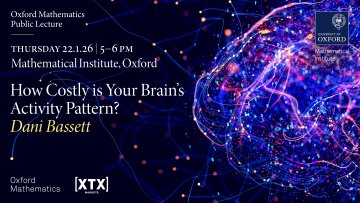12:45
Journal Club
Please submit papers to discuss and topic suggestions here: https://sites.google.com/view/math-phys-oxford/journal-club
12:45
Journal Club
Please submit papers to discuss and topic suggestions here: https://sites.google.com/view/math-phys-oxford/journal-club
12:45
Are Generalised Symmetries Symmetries?
Abstract
Please submit papers to discuss and topic suggestions here: https://sites.google.com/view/math-phys-oxford/journal-club
12:45
Setting the stage for flat space holography
Abstract
Flat space holography, if there really is such a thing, is intimately related to Carrollian geometry. I will give an introduction to Carrollian geometry, and discuss how many Carrollian spaces of interest arise as homogeneous spaces of the Poincaré group. Finally, I will discuss the construction of Cartan geometries modelled on these spaces.
Please submit papers to discuss and topic suggestions here: https://sites.google.com/view/math-phys-oxford/journal-club
13:00
Non-conformal Dp-brane holography
Abstract
The canonical example of AdS/CFT relates N=4 SYM in 4d to supergravity on AdS5 x S5 by considering a stack of D3-branes. A natural question then emerges: what about considering other Dp-branes? The worldvolume theory is again SYM but is not conformal anymore, while the supergravity dual is now only conformally AdS. Despite these differences, some control remains, and some inspiration from the p=3 case can be sought. In this talk, I will review this setup and discuss the recent results of [2503.18770] and [2503.14685] regarding the computation of correlation functions.
Please submit papers to discuss and topic suggestions here: https://sites.google.com/view/math-phys-oxford/journal-club



